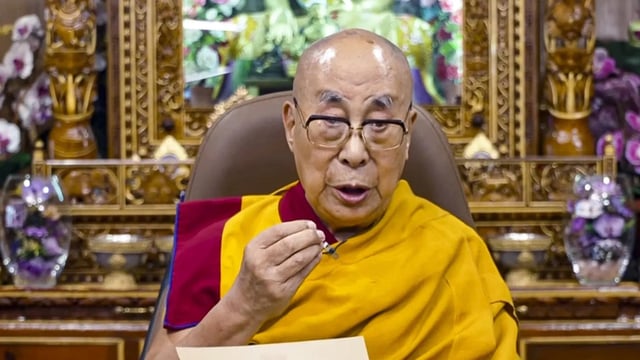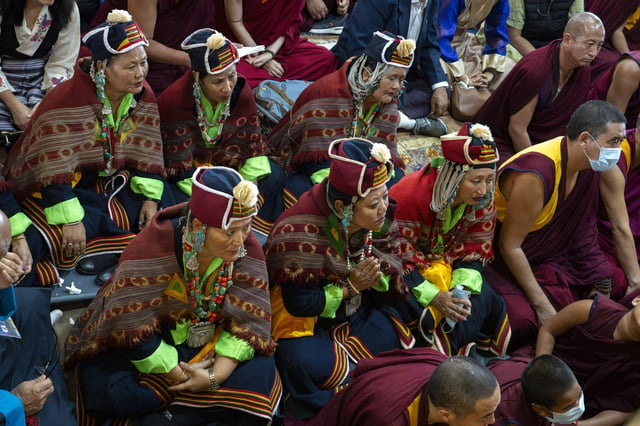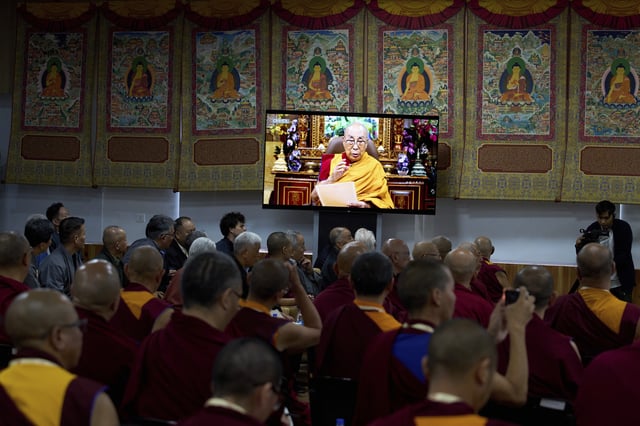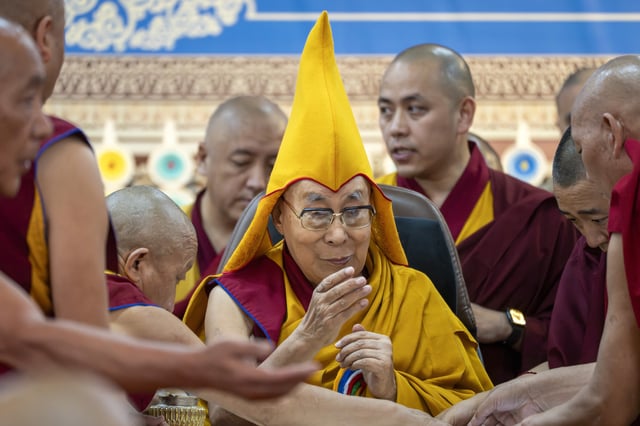Overview
- Union Minister Kiren Rijiju publicly endorsed the Dalai Lama’s decision, stressing that no one besides the spiritual leader or his institution may decide his reincarnation.
- India’s Foreign Ministry has maintained an official policy of non-interference in religious affairs even as individual ministers affirm support for the Dalai Lama’s plan.
- China’s foreign ministry reiterated its claim that only Beijing holds legal authority over Tibetan reincarnations and warned New Delhi against interfering in its domestic affairs.
- The U.S. government urged China to respect Tibetan Buddhist autonomy, calling on Beijing to cease interference in succession decisions for the Dalai Lama and other lamas.
- Many exiled Tibetans fear that once the Dalai Lama dies, China will install a state-approved successor to legitimize its control over Tibetan Buddhism and erode cultural identity.



